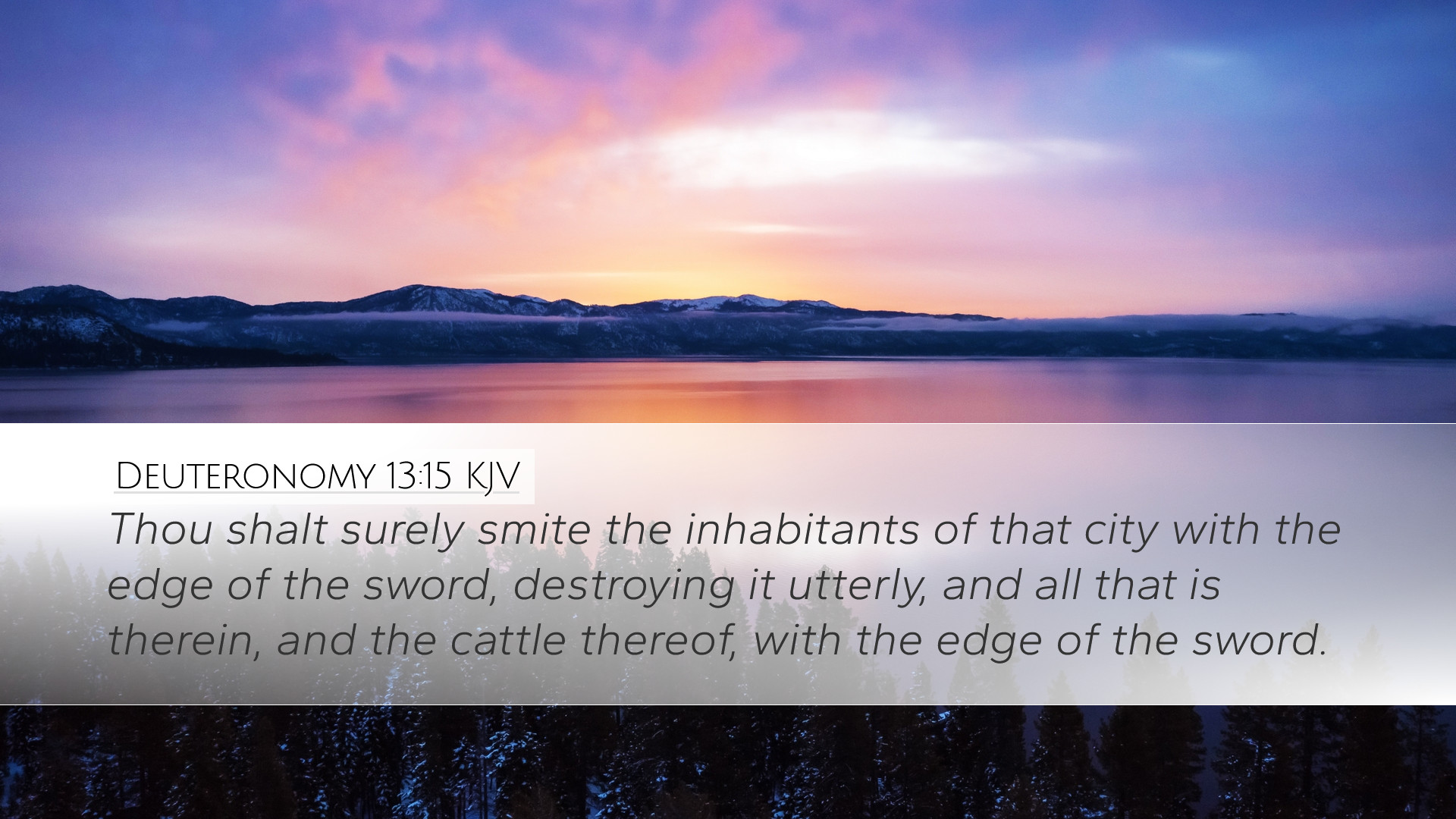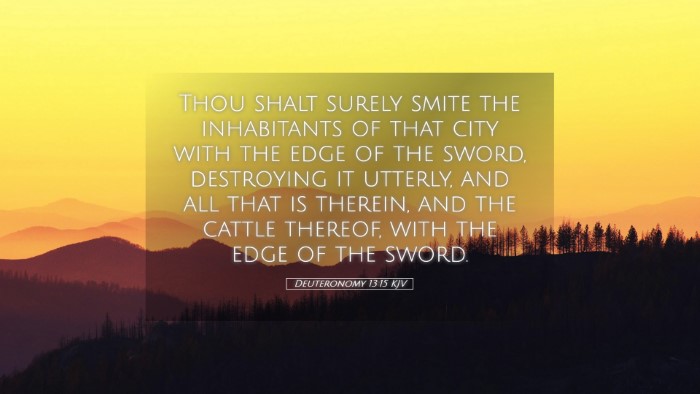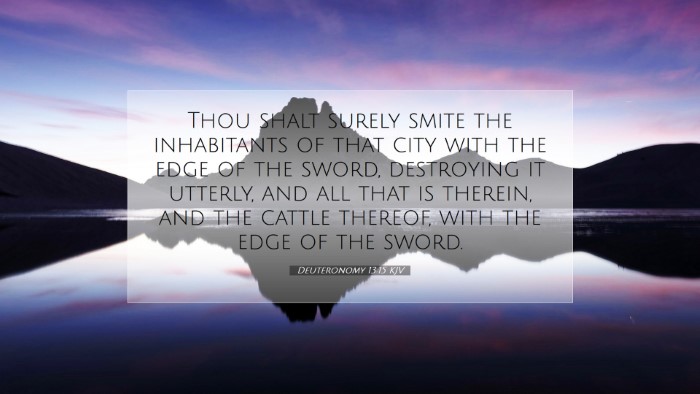Commentary on Deuteronomy 13:15
Deuteronomy 13:15 states: "You shall surely strike the inhabitants of that city with the edge of the sword, utterly destroy it, and all that is in it, and its livestock, with the edge of the sword." This verse raises profound questions regarding divine judgment, covenant faithfulness, and the nature of Israel's relationship with surrounding nations.
Contextual Understanding
To fully grasp the weight of Deuteronomy 13:15, it is essential to consider the broader context of the chapter and the book of Deuteronomy itself. This section addresses the dangers of idolatry and the severe implications it poses on communal and spiritual life in Israel.
- Idolatry's Dangers: The preceding passages warn about the insidious nature of false prophets and the temptation to follow other gods, which poses a threat to the covenantal relationship between Israel and Yahweh.
- Divine Judgment: The instruction to destroy an entire city symbolizes God's holy judgment against idolatry. This illustrates the seriousness with which God views unfaithfulness and the potential calamity that arises from allowing idolatrous practices to take root.
- Covenantal Obligation: As a covenant community, Israel was tasked with preserving the purity of worship and devotion to Yahweh. The harsh measures prescribed underscore the necessity of maintaining covenant fidelity.
Theological Insights
Examining this verse through a theological lens reveals several critical insights pertinent to scholars and students of the Scripture:
- The Holiness of God: God's command to destroy the city encapsulates the theme of divine holiness. As noted by Matthew Henry, the destruction serves as a reminder that God will not tolerate competing allegiances. Idolatry is portrayed not as a benign alternative but as an affront to God's nature.
- The Severity of Idolatry: Albert Barnes articulates that the extreme measures reflect the gravity of leading others away from the covenant. The act of idolatry is not merely a personal failing but a communal catastrophe.
- Divine Justice vs. Human Understanding: This judgment might perplex modern readers, but Adam Clarke emphasizes that divine justice operates from a higher moral and ethical plane. What may seem harsh in human terms aligns with God’s overarching plan for holiness in His people.
Historical and Cultural Context
Understanding the historical and cultural backdrop of ancient Israel can illuminate additional dimensions of this text:
- Ancient Near Eastern Practices: In the context of the Ancient Near East, cities often had a god or deity they worshipped. The command to destroy entirely is a repudiation of cultural practices that were antithetical to Israel's faith.
- Community Integrity: The communal nature of ancient Israel meant that the actions of one could have far-reaching implications for all. Thus, the eradication of idolatry within a single city was essential for the integrity and survival of the Israelite identity as a people set apart.
Practical Applications
From this verse, contemporary readers can extract meaningful applications for today:
- Guarding One's Faith: Just as Israel was tasked with guarding against idolatry, modern believers are called to be vigilant against influences that seek to draw them away from genuine worship.
- Community Accountability: There is a strong call for churches today to hold one another accountable in matters of faith, ensuring that the community remains devoted to Christ and genuine worship.
- Understanding Divine Justice: Embracing a framework for understanding divine justice encourages believers to trust in God's sovereign plans, even when circumstances seem harsh or difficult to comprehend.
Conclusion
Deuteronomy 13:15 challenges readers to reckon with the themes of divine judgment, the seriousness of idolatry, and the covenantal standards expected of God's people. Through the wisdom of public domain commentaries, such as those by Matthew Henry, Albert Barnes, and Adam Clarke, a richer understanding emerges—one that invites reflection, study, and application to contemporary faith practices.


